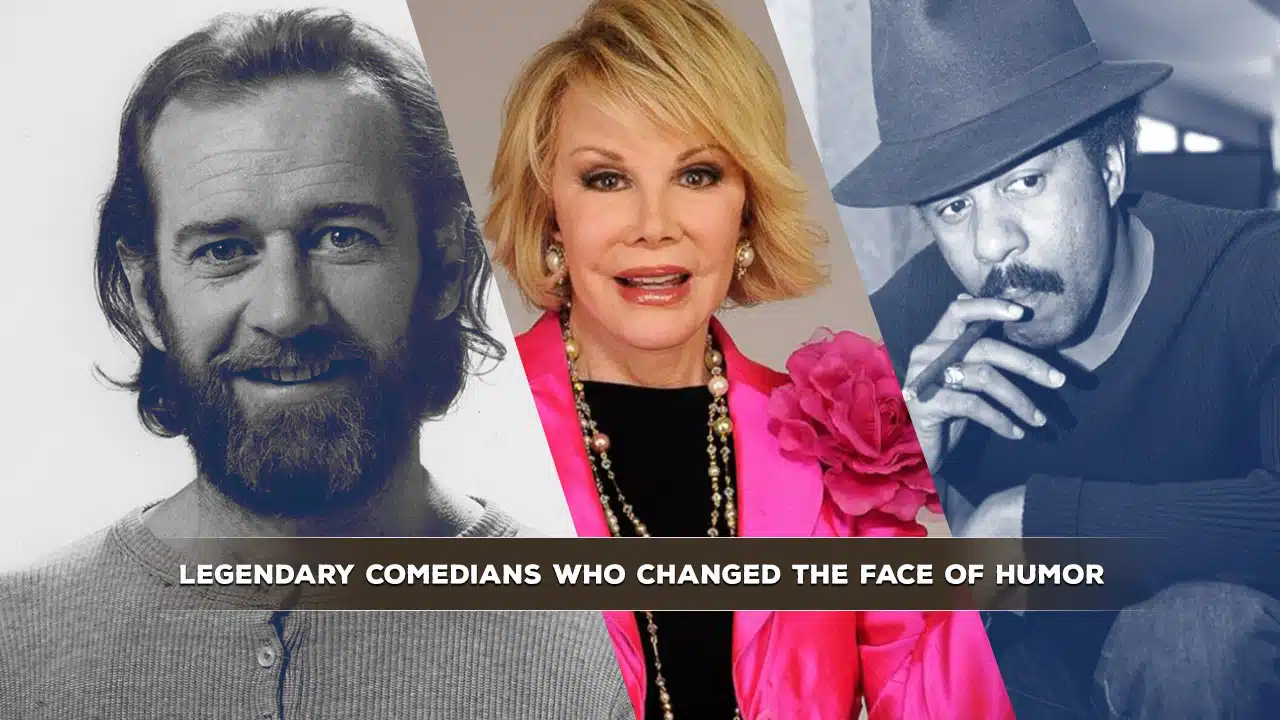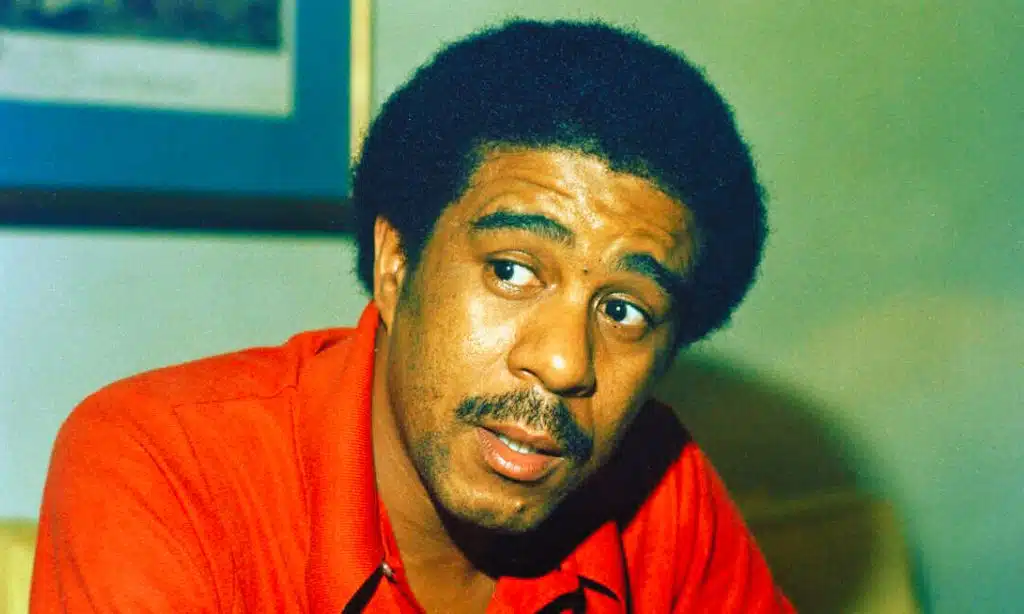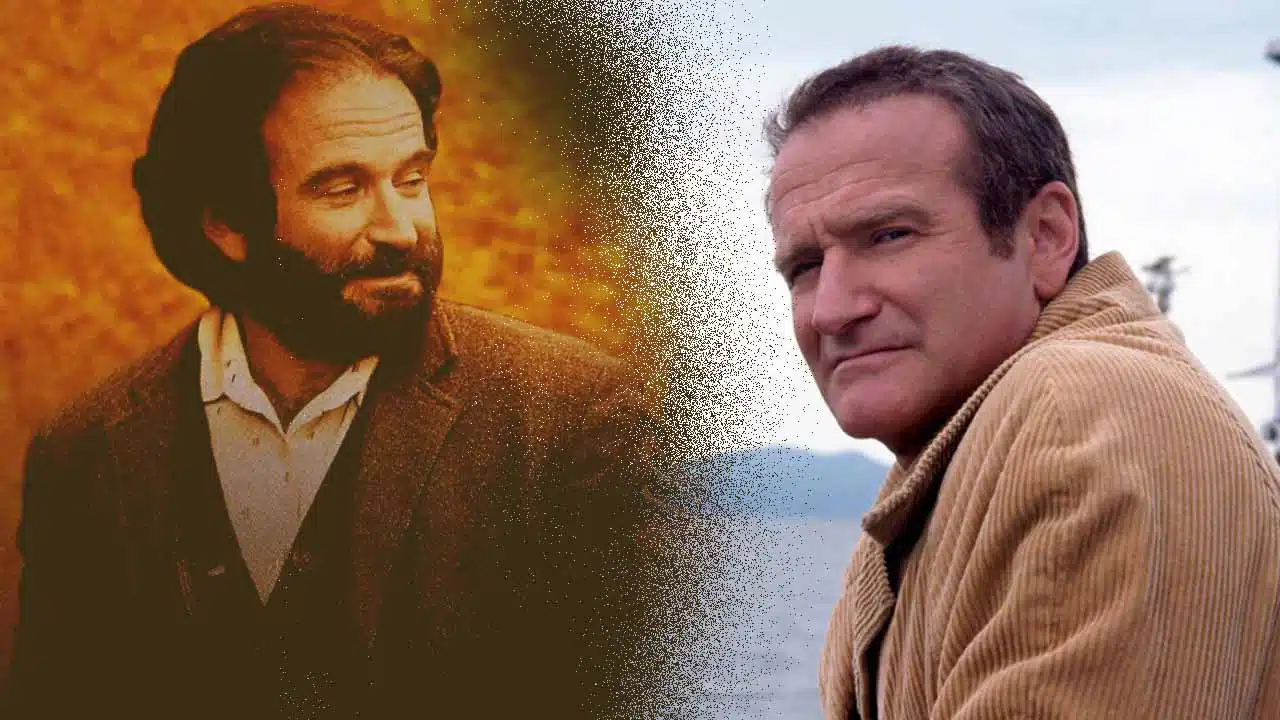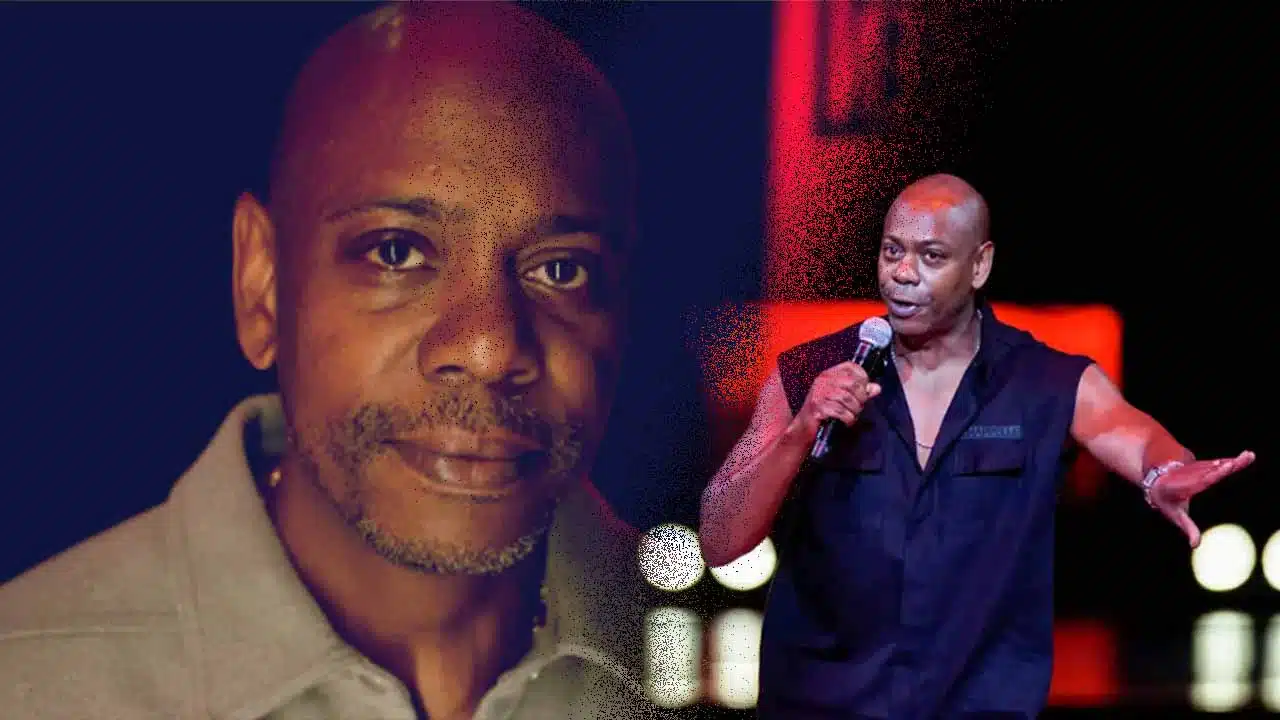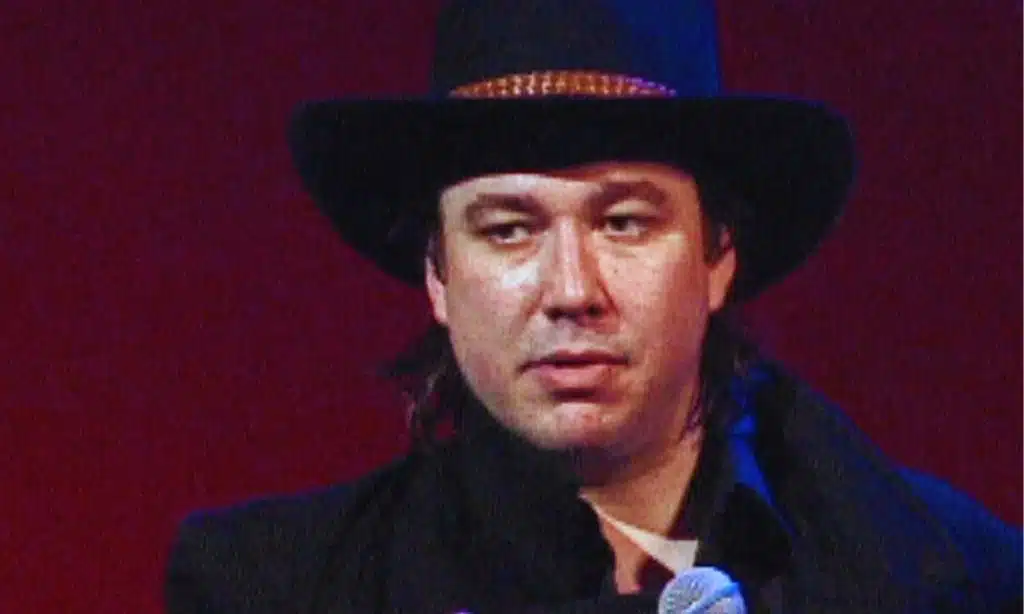Comedy has shaped entertainment for generations. From early vaudeville acts to modern stand-up specials, talented comedians have made us laugh and think. These legendary performers didn’t just tell jokes – they changed how we see humor.
Some comedians stood out by creating unique characters or styles. Others pushed boundaries and tackled tough topics. Their influence goes beyond just getting laughs.
You can still see their impact on comedy today, from TV shows to movies to social media. Let’s look at 12 comedians who truly changed the game.
1. Richard Pryor
Richard Pryor changed comedy forever. He brought raw honesty and personal experiences to the stage like no one before. His style influenced generations of comedians who followed.
Pryor grew up in difficult circumstances. He turned his pain into groundbreaking comedy that tackled tough topics head-on. Race, sex, and drugs were all fair game in his acts.
You might know Pryor from his stand-up specials or movies. His 1979 special “Live in Concert” is considered one of the most outstanding comedy performances ever. It showed his unmatched ability to tell stories and create vivid characters.
Pryor’s comedy pushed boundaries. He used profanity freely and discussed taboo subjects. This shocked some people but earned him a devoted following. His fearless approach paved the way for more open and honest comedy.
Beyond stand-up, Pryor had success in films and TV. He starred in hits like “Stir Crazy” and “Silver Streak.” These roles helped bring his unique comedic voice to an even wider audience.
Pryor faced many personal struggles throughout his life. He battled drug addiction and health issues. Yet he continued to create groundbreaking comedy that made people laugh and think.
2. George Carlin
George Carlin was a comedy giant who changed the face of stand-up forever. Born in 1937, he became one of America’s most influential comedians.
Carlin’s razor-sharp wit and biting social commentary set him apart. He tackled taboo topics head-on, pushing boundaries and challenging norms.
You may know Carlin for his famous “Seven Dirty Words” routine. This controversial act led to a Supreme Court case on broadcasting regulations.
His comedy evolved, becoming darker and more pointed—Carlin aimed at politics, religion, and consumer culture with scathing humor.
What made Carlin unique was his mastery of language. He loved to play with words and expose the absurdities of everyday speech.
Carlin’s influence on comedy can’t be overstated. He paved the way for edgier, more politically-charged stand-up acts.
Even after he died in 2008, Carlin’s impact lives on. Many modern comedians cite him as a significant inspiration for their work.
3. Joan Rivers
Joan Rivers was a trailblazing comedian who changed comedy forever. You might know her for her sharp wit and biting humor. She broke barriers for women in comedy and paved the way for future generations.
Rivers started her career in the 1960s, performing in comedy clubs. She quickly gained fame for her bold and unapologetic style. Her catchphrase “Can we talk?” became iconic.
You could always count on Rivers to say what others were afraid to. She joked about celebrities, politics, and even herself. Nothing was off-limits in her act.
Rivers was a regular guest on “The Tonight Show” with Johnny Carson. She became the first woman to host a late-night talk show on network TV.
Her career had ups and downs, but Rivers never gave up. She often reinvented herself, from stand-up to TV host to fashion critic. Her work ethic was legendary.
Rivers passed away in 2014 at age 81. She left behind a lasting legacy in comedy. Many of today’s top female comedians cite her as an inspiration.
You can still see Rivers’ influence in comedy today. Her fearless approach to taboo topics opened doors for comedians to be more daring and honest in their acts.
4. Robin Williams
Robin Williams was a comic genius who changed comedy forever. You might remember him from movies like “Mrs. Doubtfire” and “Aladdin.” But his impact went far beyond the big screen.
Williams got his start in stand-up comedy in the 1970s. His quick wit and wild energy made him stand out. He could jump between characters and voices in seconds, leaving audiences amazed.
On TV, Williams became famous as Mork in “Mork & Mindy.” His alien character showed off his talent for physical comedy and improvisation. He made people laugh while tackling serious topics, too.
In movies, Williams proved he could do more than just make jokes. He won an Oscar for his role in “Good Will Hunting.” He also touched hearts in films like “Dead Poets Society.”
Williams had a way of connecting with people through humor. His comedy often mixed silly voices with intelligent observations about life. He wasn’t afraid to be vulnerable on stage, which made fans feel close to him.
Even after his passing in 2014, Williams’ influence lives on. You can see his impact in the work of many comedians today. His ability to blend humor with heart changed how we think about comedy.
5. Lenny Bruce
Lenny Bruce shook up the comedy world in the 1950s and 60s. He pushed boundaries with his raw, honest style. You might know him as the comedian arrested for using bad words on stage.
Bruce talked about topics most comedians avoided. He joked about religion, politics, and sex. This was shocking at the time. Many people thought his act was too vulgar.
But Bruce wasn’t just trying to shock people. He wanted to make them think. His jokes challenged social norms and hypocrisy. He believed comedy could change minds and spark meaningful conversations.
Bruce’s career was cut short. He faced many legal troubles because of his act. He was arrested several times for obscenity. These battles took a toll on his health and career.
Despite his challenges, Bruce left a lasting mark on comedy. He paved the way for future comedians to tackle tough subjects—many famous comedians today credit Bruce as an influence.
Bruce died in 1966 at just 40 years old. But his impact on comedy lives on. He showed that stand-up could be more than just silly jokes. It could be a powerful tool for social commentary.
6. Dave Chappelle
Dave Chappelle is a comedy powerhouse who transformed the landscape of humor. You’ve likely heard his name or seen his work. He burst onto the scene with his groundbreaking sketch comedy series, “Chappelle’s Show.
This show tackled sensitive social issues with razor-sharp wit. Chappelle’s unique style blended social commentary with outrageous humor. He wasn’t afraid to push boundaries and make people think.
After the show’s success, Chappelle surprised everyone by walking away. He turned down a $50 million contract. This bold move shocked the entertainment world. It also showed Chappelle’s commitment to his artistic vision.
Years later, Chappelle made a triumphant return to comedy. He signed a massive deal with Netflix for multiple stand-up specials. These shows proved he hadn’t lost his edge.
Chappelle’s comedy evolves with the times. He continues to address current issues in his performances. His ability to make you laugh while challenging your views is unmatched. Whether you agree with him or not, there’s no denying Chappelle’s impact on modern comedy.
7. Eddie Murphy
Eddie Murphy burst onto the comedy scene in the 1980s, changing the face of humor forever. You might remember him from his breakout role on Saturday Night Live, where he quickly became a fan favorite.
Murphy’s stand-up specials like “Delirious” and “Raw” pushed boundaries and set new standards for comedy. His fearless approach to controversial topics left audiences in stitches.
But Murphy didn’t stop there. He took Hollywood by storm with hit movies like “Beverly Hills Cop” and “Coming to America.” His unique blend of charm and wit made him a box-office sensation.
You can’t talk about Murphy without mentioning his iconic laugh. It’s so distinctive that other comedians often imitate it in their impressions of him.
Murphy’s influence on comedy is undeniable. He paved the way for a new generation of African American comedians and actors. His sharp observations and unforgettable characters continue to inspire comics today.
Eddie Murphy has left an indelible mark on the comedy world, from stand-up to the big screen. His ability to make you laugh until it hurts is a testament to his enduring talent and impact on the industry.
8. Lucille Ball
Lucille Ball was a comedy trailblazer who changed television forever. You might know her best from the iconic show “I Love Lucy.” This groundbreaking sitcom premiered in 1951 and quickly became a hit.
Ball’s talent for physical comedy and impeccable timing set her apart. She wasn’t afraid to look silly or messy on screen, which was rare for women then. Her facial expressions and slapstick routines had viewers in stitches.
Did you know Ball was also a savvy businesswoman? She co-founded Desilu Productions with her husband, Desi Arnaz. This made her the first woman to run a major television production company.
Ball’s influence extended beyond her show. Desilu Productions went on to produce other popular series like “Star Trek” and “Mission: Impossible.” She paved the way for more women to take on leadership roles in the entertainment industry.
Even today, Ball’s impact on comedy is clear. Many female comedians cite her as an inspiration. Her willingness to push boundaries and take risks in her performances opened doors for future generations of funny women.
Ball’s legacy lives on through reruns, tributes, and the countless comedians she inspired. When you watch a sitcom today, chances are you’re seeing a bit of Lucy’s influence shine through.
9. Bill Hicks
Bill Hicks was a game-changer in comedy. His bold style and fearless approach set him apart from other comedians of his time.
You might know Hicks for his sharp wit and biting satire. He wasn’t afraid to tackle tough topics that others avoided. His material often challenged societal norms and made people think.
Hicks had a unique way of blending humor with social commentary. He pushed boundaries and explored taboo subjects to provoke thought and discussion.
His influence on comedy remains strong today. Many comedians cite Hicks as an inspiration for their work. His ability to make people laugh and question the world was exceptional.
Hicks believed in being authentic on stage. He encouraged other comedians to do what they found funny, not just what they thought the audience would like. This principle helped shape his distinctive comedic voice.
Sadly, Hicks passed away at a young age. But his impact on comedy lives on. His albums and specials continue to be discovered by new fans, ensuring his legacy endures.
10. Jerry Seinfeld
Jerry Seinfeld changed comedy forever with his observational humor. You might know him from his hit TV show “Seinfeld.” But his impact goes far beyond that.
Seinfeld started as a stand-up comedian. He focused on the little things in life that everyone experiences. His jokes made people laugh in everyday situations.
You can see Seinfeld’s influence on many comedians today. He showed that humor could come from everyday life. You didn’t need crazy stories or wild characters.
Seinfeld’s TV show took his style to new heights. It was a show “about nothing,” but it became hugely popular. You probably remember some of its catchphrases.
Even after the show ended, Seinfeld kept doing stand-up. He still performs and creates new material. You can find his jokes in his recent book “Is This Anything?”
Seinfeld’s approach changed what fans expect from comedians. He made observational humor a big part of modern comedy. You can thank him for many of the jokes you hear today.
His success also changed how comedians build their careers. Many now aim for a hit TV show based on their stand-up. You can see Seinfeld’s impact all over the comedy world.
11. Chris Rock
Chris Rock is a comedy powerhouse who changed the game with his sharp wit and fearless social commentary. You’ve probably seen his stand-up specials or movies that made you laugh and think simultaneously.
Rock got his start in New York City comedy clubs in the 1980s. He honed his skills at famous spots like Catch a Rising Star and The Comic Strip. These clubs gave him chances to develop his unique style and voice.
His big break came when he joined the cast of Saturday Night Live in 1990. This launched Rock into the spotlight and set the stage for his legendary career.
Rock’s comedy tackles tough topics like race, relationships, and politics. He doesn’t shy away from controversy. Instead, he uses humor to shine a light on important issues.
His stand-up specials like “Bring the Pain” and “Bigger & Blacker” are considered classics. They showcase Rock’s ability to make you laugh and think about society’s problems.
You can see Rock’s influence in many of today’s top comedians. His bold style and social commentary paved the way for a new generation of comics to speak their minds on stage.
12. Gilda Radner
Gilda Radner was a comedy trailblazer who left an indelible mark on American humor. You might know her as one of the original cast members of Saturday Night Live (SNL) from 1975 to 1980.
Radner’s unique brand of comedy blended physical humor with clever wordplay. She created unforgettable characters like Roseanne Roseannadanna and Emily Litella. These characters became cultural icons and are still beloved today.
On SNL, Radner helped shape the show’s irreverent style. She wasn’t afraid to be silly or vulnerable on screen. This approach influenced many comedians who came after her.
Radner’s impact went beyond SNL. She performed in movies and on Broadway, showcasing her range as a performer. Her one-woman show, “Gilda Radner: Live from New York,” was a hit with audiences and critics alike.
Even after her untimely death in 1989, Radner’s legacy lives on. Many modern comedians cite her as an inspiration. Her compassionate humor and fearless style continue to resonate with audiences today.
You can see Radner’s influence in the work of comedians like Amy Poehler and Tina Fey. Her ability to be funny and relatable set a new standard for women in comedy.
Pioneering Influences in Comedy
Comedy has evolved thanks to groundbreaking performers who pushed boundaries and changed the game. These pioneers introduced new styles and challenged social norms, leaving a lasting mark on the world of humor.
Trailblazing Techniques
Phyllis Diller revolutionized stand-up in the 1950s with her self-deprecating style. She paved the way for future female comedians and became known as the “Queen of Comedy.” Her unique delivery and outrageous appearance broke the mold of traditional comedy.
Lucille Ball transformed TV comedy with “I Love Lucy.” She wasn’t afraid to look silly on screen and perfected the art of physical comedy. Her iconic expressions and scenarios still resonate in pop culture today.
Joan Rivers brought a sharp, biting wit to her routines. She tackled taboo subjects and made fun of celebrities, helping to shape modern observational comedy.
Cultural Impact
These comedy trailblazers changed more than just the entertainment world. They challenged social norms and opened doors for underrepresented groups in comedy.
Lucille Ball became the first woman to run a major TV production company. This move gave her more control over her career and content, inspiring other women in the industry.
Comedians like Moms Mabley addressed racial issues through humor, helping to spark meaningful conversations. Their work laid the groundwork for future generations of diverse comedians.
The Friars Club roast of Sid Caesar in 1983 marked a shift in comedy culture. It showed how far the industry had come in recognizing talent regardless of gender or background.
Evolution of Comedy Styles
Comedy has transformed, adapting to changing tastes and new formats. Comedians have explored different ways to make audiences laugh, from stage to screen.
Transition from Stand-Up to Sitcoms
Many famous comedians got their start in stand-up before moving to TV sitcoms. This shift will allow them to reach bigger audiences and develop ongoing characters. Jerry Seinfeld and Ray Romano are prime examples. They turned their stand-up acts into hit shows.
Stand-up comedy focuses on one person telling jokes. Sitcoms let comedians act out funny situations with other characters. This gives them more ways to be funny. It also allows them to tell longer stories over many episodes.
Some comedians kept doing stand-up while starring in sitcoms. This helped them stay sharp and test new material. It also kept them connected to live audiences.
Integration of Improvisation
Improv comedy has become a big part of modern humor. It involves making up scenes and jokes on the spot. This style adds spontaneity and freshness to performances.
Shows like “Whose Line Is It Anyway?” made improv famous on TV. Many comedians now use improv skills in their acts. It helps them react quickly to audience responses and unexpected events.
Improv also influences scripted comedy. Writers and actors often use improv techniques to develop ideas for shows. This leads to more natural dialogue and funnier situations. Shows like “The Office” and “Parks and Recreation” use a lot of improv to create their unique style.
Comedy’s Role in Social Commentary
Comedy is a powerful tool for social commentary, allowing comedians to tackle severe issues through humor. It opens up conversations about taboo subjects and shines a unique light on political matters.
Breaking Taboos
Comedy helps break down barriers around sensitive topics. Comedians like Lenny Bruce challenged social norms in the 1950s, addressing sexism and anti-Semitism. Their bold approach paved the way for future comics to discuss complex subjects.
George Carlin pushed boundaries with his sharp wit and irreverent style. He took on American culture and societal issues head-on. His fearless comedy made people think critically about the world around them.
Today’s comedians continue this tradition. They use humor to start conversations about race, gender, and other critical social issues. This approach helps make tough topics more approachable for many people.
Satire and Political Humor
Political satire plays a crucial role in social commentary. Late-night TV hosts like Stephen Colbert and Seth Meyers offer biting political commentary through comedy. Their shows help viewers stay informed about current events in an entertaining way.
Satirical humor can simplify complex political issues. It makes them more accessible to a broader audience. This type of comedy often serves as a form of criticism against those in power.
Political comedians act as watchdogs for society. They point out flaws in government policies and highlight social injustices. Their unique perspective can inspire change and encourage viewers to think critically about important issues.
Takeaways
the 12 legendary comedians highlighted have significantly shaped the comedy landscape, leaving an indelible mark on the entertainment industry and society.
From the groundbreaking performances of Richard Pryor and George Carlin to the fearless trailblazing of Joan Rivers and Lucille Ball, these comedians challenged norms, broke boundaries, and redefined what humor could be. Their influence extends beyond their careers, inspiring generations of comedians who continue pushing the envelope.
Comedy’s evolution, from stand-up to sitcoms and improv, reflects changing societal tastes and the increasing complexity of our issues. These comedians used their platforms to do more than just entertain—they used humor as a powerful tool for social commentary, addressing taboo subjects and political issues with wit and insight.
As we look back on their contributions, it’s clear that these comedians didn’t just make us laugh; they made us think, challenged our perspectives, and forever altered the course of comedy.
Their legacy continues to resonate in today’s humor, reminding us of the enduring power of laughter in shaping culture and society.


